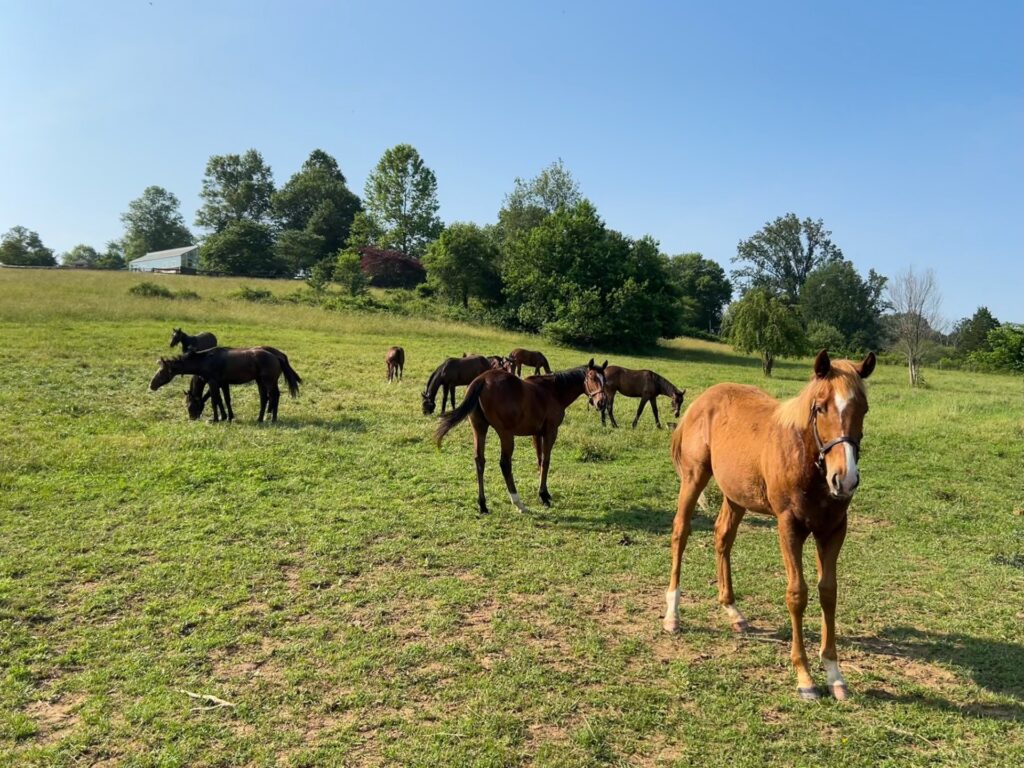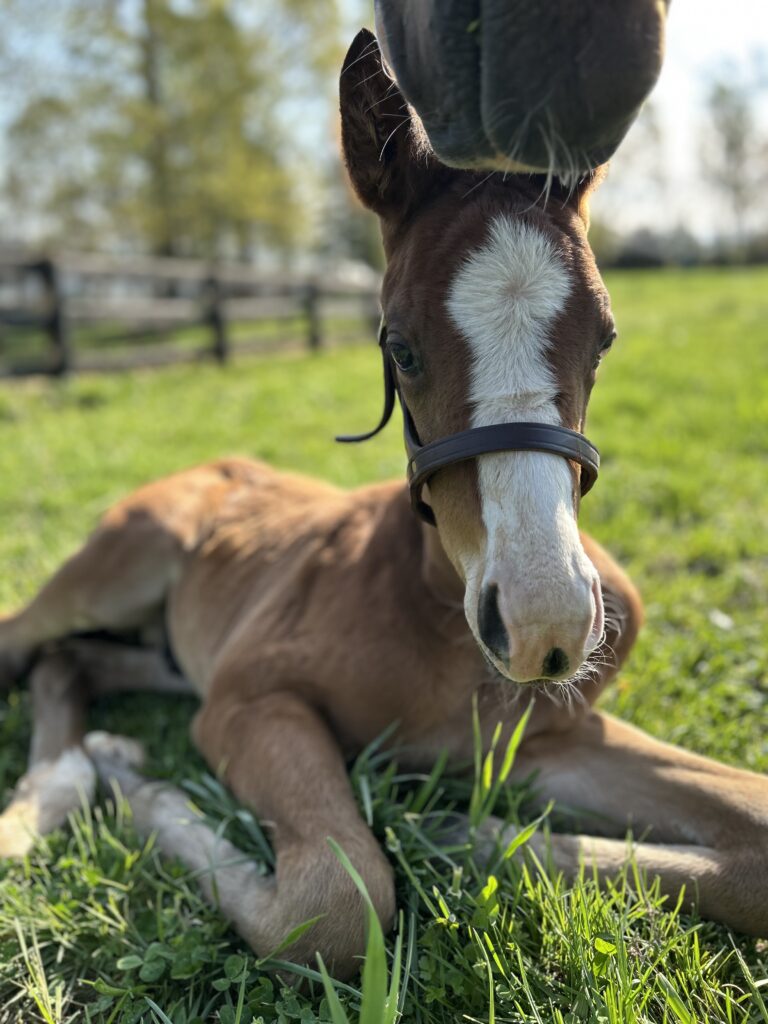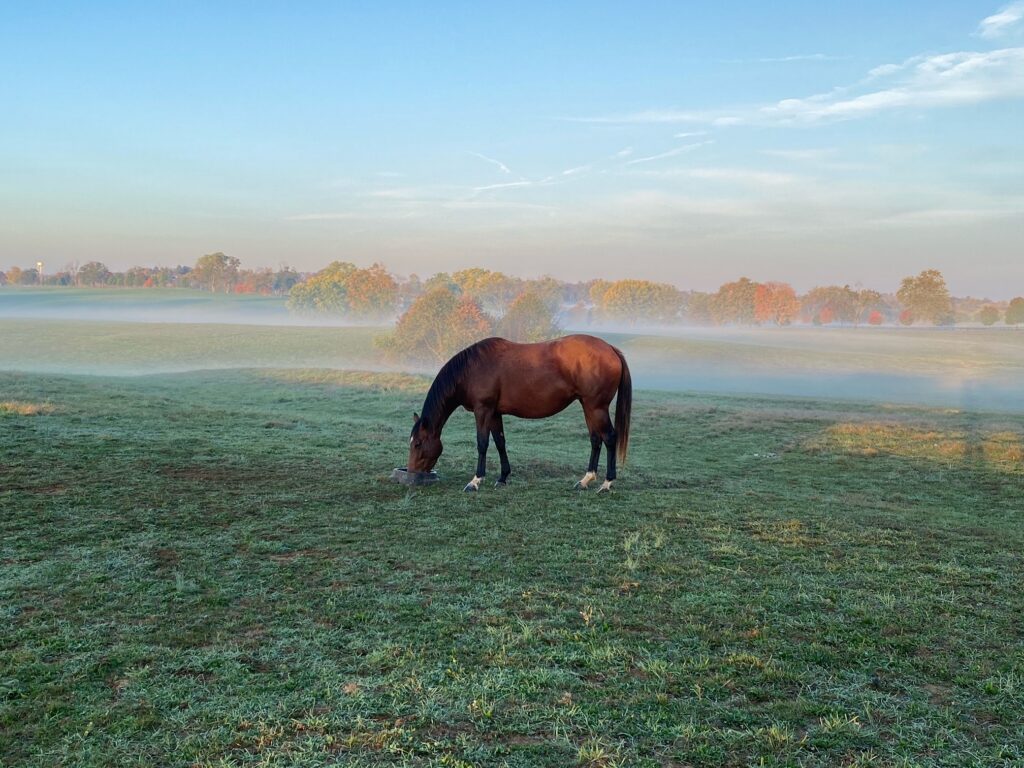The Virginia Thoroughbred Association (VTA) is riding a wave of momentum as the state’s horse racing scene continues to grow, triggered by the success of Historical Horse Racing wagering handle at seven different Rosie’s Gaming Emporiums spread across the Commonwealth. That success has led to 44 days of racing at Colonial Downs in 2025, up from 27 race days a year ago — including a new 3-day meet in March highlighted by the running of the Virginia Derby and Oaks as new qualifying races for the Kentucky Derby and Oaks. A $5.8 million summer stakes calendar and record purse distribution of $27 million highlight the summer campaign.
The VTA’s incentive programs are growing in conjunction with purses and handle, and now is an ideal time for breeders, owners and trainers to discover the benefits of these initiatives. Whether it’s the Virginia-Bred, Virginia-Certified or Virginia-Sired program, potential bonus monies await.

The Virginia-Bred program offers rewards to breeders, developers and owners of registered thoroughbreds foaled in Virginia. Breeders earn bonuses for finishing first, second or third in any open race in North America, outside of state-bred and state-sired races. Breeders’ bonuses are earned for any top three finish at Colonial Downs and at NSA sanctioned meets. In 2024, bonus payouts turned out to be 36% of purses earned making this program’s return on investment the only one of its kind in the country. In order to qualify, the foal’s dam must reside in Virginia from September 1st of the year of conception until foaling the following year.
Amy Moore is a commercial breeder based in Northern Virginia and is a VTA past president. “Being a commercial breeder, I sell most of the foals I produce as weanlings or yearlings, and they might go anywhere to race. Lots of Virginia-breds run in New York or the mid-Atlantic, where they are eligible for purse enhancements, lucrative restricted races, and bonus money. But if my Virginia-bred foals run well against open company in Florida, or Kentucky, or California, or even in Canada, I earn breeder’s incentive awards there as well.”

“Many breeders’ programs offer incentives for state-bred horses to run in their home state against other state-bred horses,” added Moore. “Virginia has some great restricted-race opportunities at Colonial Downs, but it also rewards breeders who produce horses that can compete against anyone, anywhere. The national reach of Virginia’s program is a real benefit to Virginia breeders.”
Virginia-bred awards also extend to the developer and owner as well. The developer, who is the owner of the horse when it makes its first lifetime start, earns up to a 25% bonus for open race wins in six states — New York, New Jersey, Pennsylvania, Delaware, Maryland and Virginia — including NSA sanctioned meets in the Mid-Atlantic. Developer awards are not earned for out-of-state wins during Colonial’s meet and only for open race wins at Colonial Downs.
Owners of Virginia-breds earn a 50% bonus on 1st thru 4th place winnings in open races at the New Kent track. At Colonial Downs, Virginia-bred horses are also eligible to compete in Virginia-Restricted 2-Year-Old Stakes, Virgnia-Restricted Handicaps, Virginia-Bred/Sired Stakes and Maryland/Virginia-Bred/Sired Stakes— courtesy of a new slate of events to be contested at both Colonial and in Maryland. In addition, Virginia-restricted overnight purses are 25% higher than open race purses (at Colonial).
“Virginia’s award pool is large, and growing,” said Moore. “Breeding thoroughbreds is expensive, and that bonus money certainly helps to pay the bills. I love the flexibility of Virginia’s incentive program. There is no breed-back rule and no requirement to breed your mare to a regional stallion. If you buy a mare at public auction, she can qualify for the program if you bring her to Virginia within 15 days. I bought a nice mare at the Fasig-Tipton sale last November and brought her to Virginia, and she foaled a Virginia-bred Flightline colt this spring. I am excited to see what he can do in a few years’ time!”
The formation of Virginia’s Certified-Residency program back in 2016 helped stabilize the native industry after Colonial Downs’ initial owner surrendered the track’s racing license in early 2015. From 2016 – 2023, over $16 million in bonus monies have been distributed to graduates of the residency program. In order to qualify, horses must reside at a Virginia registered farm for at least six consecutive months before December 31st of their two-year-old year. Developers then earn up to a 25% bonus for any open race win in the states noted in the Breeder’s section above, and a 10% bonus for state-bred restricted races in those same states, with the exception of Virginia.

“It’s an interesting program because Virginia is a great place to raise young horses,” said Wayne Chatfield-Taylor who along with his wife Susie, have owned Morgan’s Ford Farm in Front Royal, VA since 1979. “The way to qualify a baby for the program is to get them here (to Virginia) early for the minimum six month stay but even afterwards, they have to be boarded somewhere, so why not stay here. Virginia has a nice environment, has four seasons and has really good pasture. Developers will get bonus money once the horse starts racing and the horses will reap the benefits of good farmland. It’s a win-win.”
Owners should note that Virginia-Certified horses are eligible to compete in Virginia-Restricted races at Colonial — with Virginia-Bred & Virginia-Sired horses. The Virginia-Restricted summer lineup includes two $100,000 freshmen stakes and four $100,000 Handicap races.
The Virginia-Sired program is open to thoroughbreds conceived in Virginia, sired by a Virginia-registered stallion, and foaled out of state. Developer bonuses mirror those noted in the Breeders and Certified program sections. Owners earn a 50% bonus on 1st thru 4th purses in open races at Colonial and experience the same overnight and stakes purse bumps as noted in the Breeders section.
“The VTA is excited to see this kind of growth and momentum in the industry as challenges arise across the nation,” said VTA President Turner Kobayashi. “The Certified program and the Owner and Breeder purse bonus awards have attracted more mares producing more foals and more horses racing in the state and locally. We hosted the Virginia Derby in March this year as a prep race for the Kentucky Derby. We continue to look at ways to innovate and improve to attract more owners, breeders and fans to experience the thrill that thoroughbred horse racing brings.”

